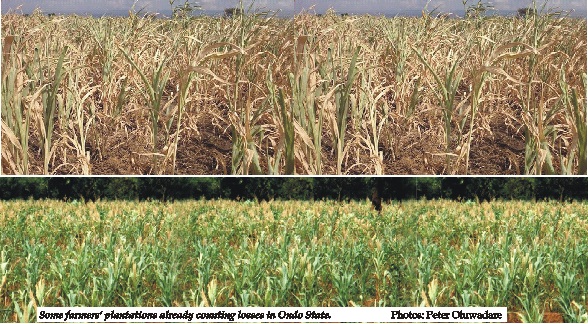FG’s U-Turn On Fuel Subsidy Removal
AS the federal government finally bowed to reason concerning its previous plan to remove fuel subsidy by June 2022, Nigerians can now heave a sigh of relief from the anticipated economic hardship the removal would have brought on them. This is both heartwarming and a welcome development.The idea behind fuel subsidy is that the federal government should bear part of the financial burden of purchasing crude oil bye-products so that citizens are able to buy them from retailers at lower and more affordable prices.
SUBSIDIES exist because Nigeria depends largely on importation to service local consumption of refined products as existing refineries have failed to work. Nigeria has four refineries built between 1965 and 1989. Two of the refineries are located at Port Harcourt, with capacity to refine 210,000 barrels per day while the two other refineries are located in Warri and Kaduna with nominal capacities of 125,000 and 110,000 barrels per day respectively. Were the four refineries to work optimally, their combined output still falls below what is consumed in Nigeria but sadly enough all the four are laying prostrate thus necessitating importation to fill the gap.
THE history of fuel subsidy in Nigeria dates back to the 1970s when the federal government introduced it to address the oil price shock of 1973 and since then, the federal government has continued to subsidise fuel at different levels of price regime. According to some government sources, Nigeria currently spends over N100 billion on fuel subsidy monthly. Obviously, the subsidy regime has become a fertile ground for corruption.
THE debate over fuel subsidy removal has been on since the 1980s but none of the successive governments has been able to address the problem which is shameful, to say the least.The issue was however revisited towards the end of 2021when the federal government, based on advice from the International Monetary Fund (IMF), announced that it would totally remove fuel subsidy by the second quarter of 2022. As a palliative, the government promised to pay a monthly transportation allowance of N5,000 to poor Nigerians.
IT is worthy of note that there has not really been a consensus on the issue of oil subsidy. Some experts have criticised it, saying that it is an unaffordable waste of money that should be invested in other sectors. For example, former Central Bank of Nigeria (CBN) governor, Sanusi Lamido Sanusi, described fuel subsidy as a scam, stating that the money spent on subsidy could be used for numerous developmental projects.
ON the other hand, others believe that removing the subsidy will bring untold hardship to Nigerians, as pump price of petrol would rise from N162-N165 to N320-N340. For instance, labour leaders did not only oppose the move by the government to remove the subsidy but threatened to mobilise members for massive protestsuntil government made a U-turn.
ALSO noteworthy is the red flag that the Nigerian Governors’ Forum (NGF) raised over some data released by the Nigerian National Petroleum Corporation (NNPC). The NNPC claimed that about N3 trillion was budgeted for oil subsidy in 2022. Government also puts petrol consumption at 65.7 million litres per day.Chairman of the Governors Forum, Kayode Fayemi, said there were many questions of accountability to be answered by the NNPC concerning subsidy, that until the truths were revealed, many people would continue to be uncomfortable with the fuel subsidy removal.
REVIEWING the recent developments in the oil industry, the NGF and labour leaders agreed that the gap in the subsidy removal agenda was “hidden in the untruth bandied by the administrators of the subsidy.”The Hope is of the opinion that the federal government should not just sweep these fears raised by the governors’ forum and labour under the carpet but clear the air on them.
AS a way forward, the time is more than ripe for government to revisit our moribund refineries and get them working again. That will reduce the quantity of refined products that Nigeria has to import. In this light, we are of the opinion that the federal government should invite private investors like international companies and concession the four dormant refineries to them on a Build Operate and Transfer (BOT) basis.
ALSO, we urge the federal government to give moral and financial support to those who have subscribed to modular refineries and do proper monitoring, to ensure that the refineries work at optimum capacity.Unless the federal government ensures that Nigeria is able to process her crude oil locally, it is certain that we would only be postponing the evil day as local production is the best antidote to subsidy removal.In addition, government should consider the ongoing climate change in the world and take necessary steps to ensure that activities of the refineries do not harm the ecosystem. In other words, the refineries should be environmentally friendly.










